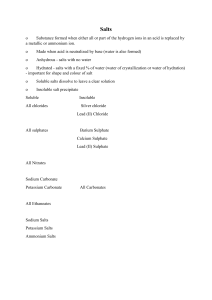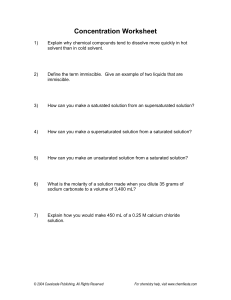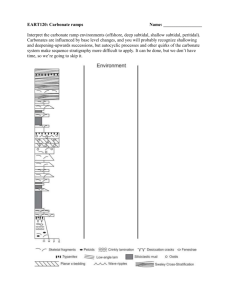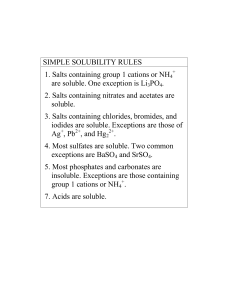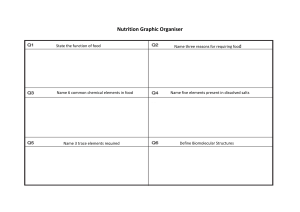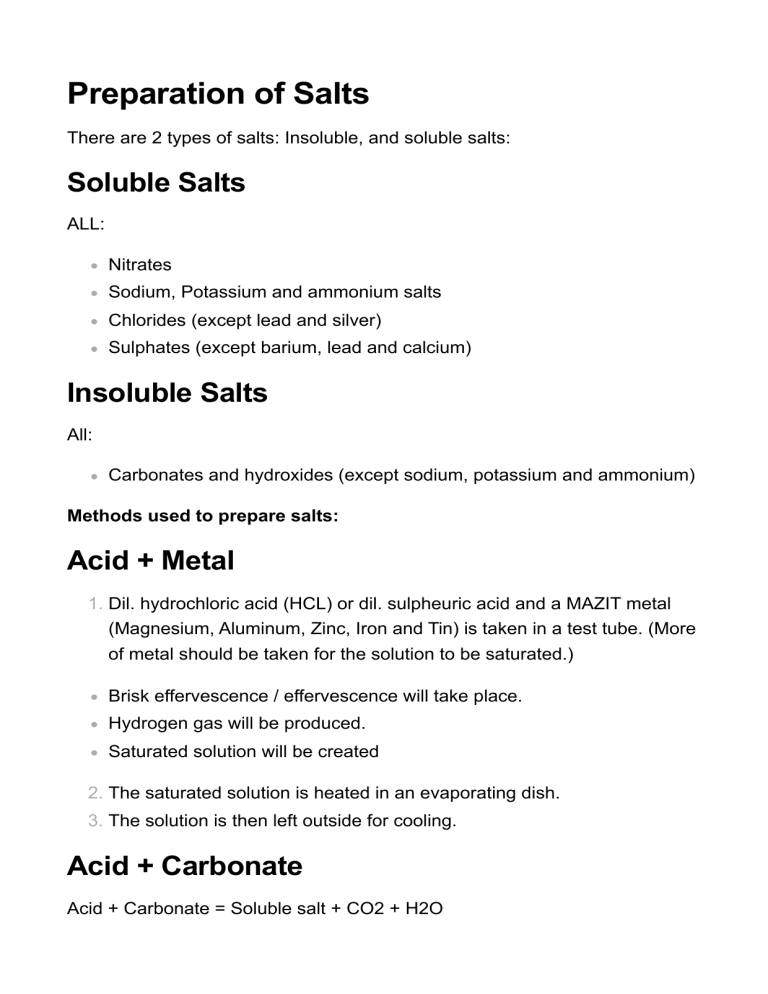
Preparation of Salts There are 2 types of salts: Insoluble, and soluble salts: Soluble Salts ALL: Nitrates Sodium, Potassium and ammonium salts Chlorides (except lead and silver) Sulphates (except barium, lead and calcium) Insoluble Salts All: Carbonates and hydroxides (except sodium, potassium and ammonium) Methods used to prepare salts: Acid + Metal 1. Dil. hydrochloric acid (HCL) or dil. sulpheuric acid and a MAZIT metal (Magnesium, Aluminum, Zinc, Iron and Tin) is taken in a test tube. (More of metal should be taken for the solution to be saturated.) Brisk effervescence / effervescence will take place. Hydrogen gas will be produced. Saturated solution will be created 2. The saturated solution is heated in an evaporating dish. 3. The solution is then left outside for cooling. Acid + Carbonate Acid + Carbonate = Soluble salt + CO2 + H2O 1. Dil. hydrochloric acid (HCL) or dil. sulphuricc acid and carbonate are taken are taken in a beaker. (More of carbonate should be taken to form a saturated solution) Brisk effervescence will take place due to the release of CO2 Saturated solution with excess carbonate will be formed. 2. The excess carbonate in the saturated sol. is filtered out. 3. The solution is then heated to its crystallization point in an evaporating dish. 4. The solution is then left outside for cooling.
